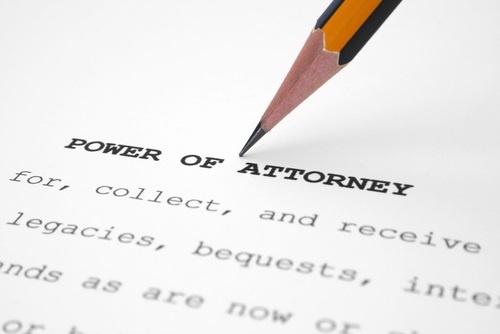How do I register an Enduring Power of Attorney during Covid-19?
Although it is no longer possible to create a new Enduring Power of Attorney (EPA), EPAs are still perfectly legal and if properly drawn up, can be registered and used.
Now the government has issued specific guidance on how to do this as safely as possible during the current pandemic.
However, the process of registering an EPA is completely different to registering a Lasting Power of Attorney (LPA), the more comprehensive and flexible document which replaced EPAs in October 2007.
Who needs to know I am going to register an EPA?
Registering an EPA with the Office of the Public Guardian (OPG), requires notice to be given to the donor, that's the person who made it, any other attorneys and at least three close relatives of the donor.
There is a 'priority order' list of relatives to work through - top is the donor's spouse and children and bottom is first cousins, taking in parents, siblings, grandchildren, uncles and aunts along the way.
If relatives in one group can't be found, or have died, you move on to the next group in order until the three closest relatives have been notified.
How do I notify them?
- All the relevant parties must be notified using the relevant form, EP1PG, by post if possible and by email if not;
- If it's not possible to notify the donor directly by post, because they are in a care home for example, it may be appropriate to post the notice to someone else, like a member of staff, to pass on to the donor;
- If the donor can't be given notice, for whatever reason, you will need to make an application to the Court of Protection.
What next?
Once you have notified the relevant people, and heard back from them, you need to fill in the application form EP2PG and pay any fee required.
It normally takes between eight and ten weeks for an EPA to be registered once the OPG receives this form.
Click here for the relevant forms as well as guidance on how to complete them.
What's the difference between an EPA and an LPA?
The key difference is that an EPA only has to be registered once the donor starts to lose mental capacity but can be used before this.
In contrast, it is compulsory for an LPA to be registered to be used, an important safeguard against potential abuse.
In addition, EPAs only cover property and financial matters and not issues relating to health and welfare whereas there are two types of LPA - a 'property and affairs' LPA and a 'health and welfare' LPA. This gives the donor more opportunities to add preferences and instructions.
Read Why Now is the Time to Review your Enduring Power of Attorney to see what we have written on this subject previously.
Get in touch
If you need help registering an EPA, want to review an EPA or make or review LPAs, please contact one of our Wills and Probate team.
To view our Wills and Probate solicitors, please click here or you can find the Wards branch nearest to you here.


